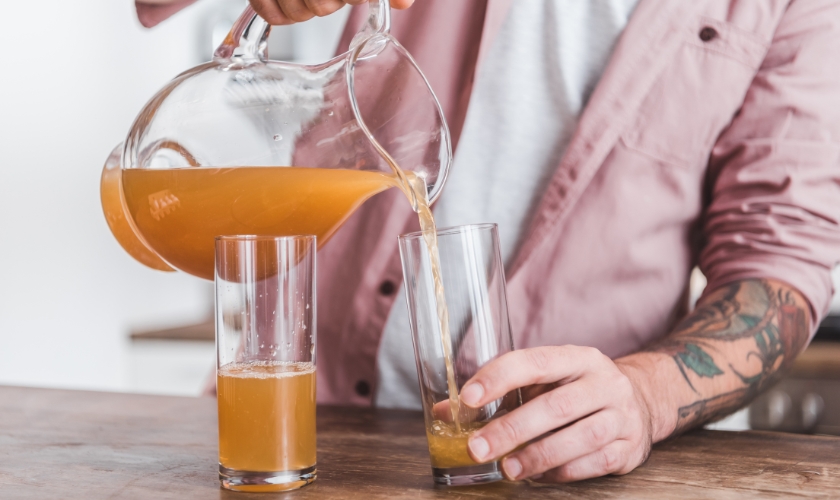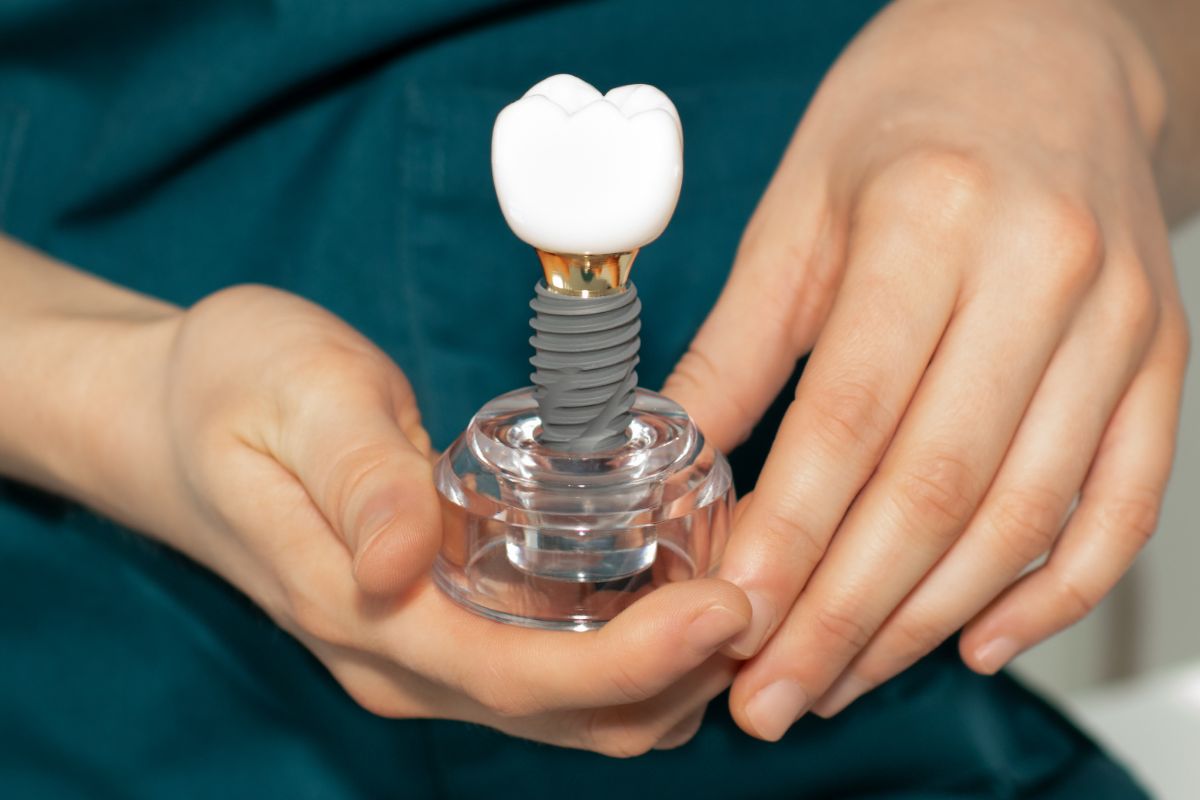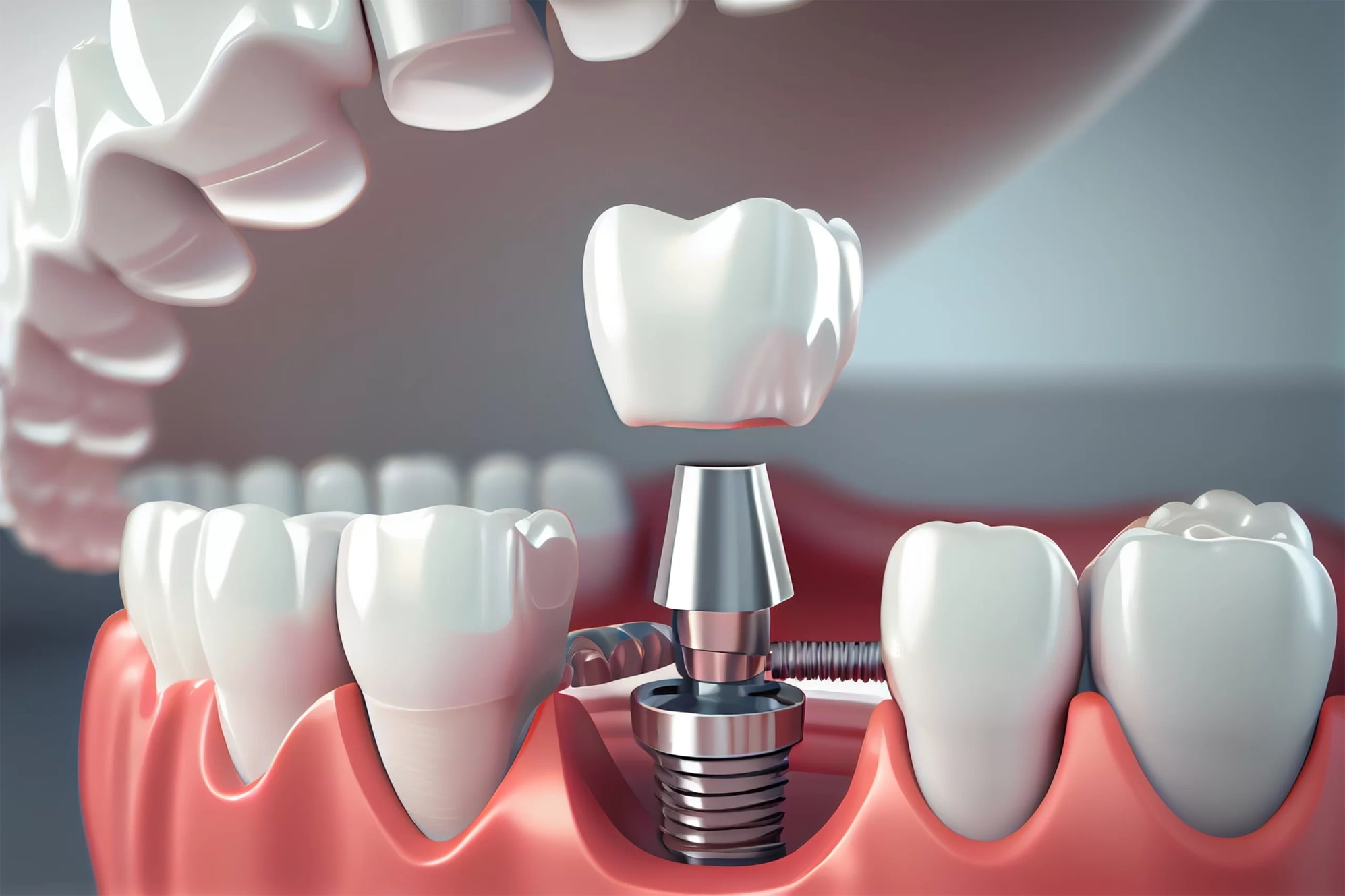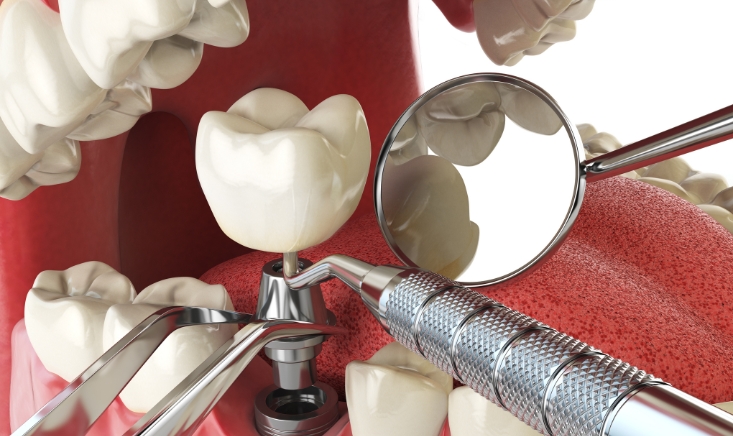We are not a registered Medicare/Medicaid Provider
Enjoying Food After Dental Implants: A Complete Post-Surgery Diet Guide

Following a dental implant surgery in Denville, your mouth and gums will be in a delicate state as they heal and integrate the new implants with your jawbone. During this time, what you choose to eat plays a crucial role in promoting a smooth recovery and minimizing discomfort.
Just like any surgical procedure, your body needs proper nourishment to rebuild tissues and fight off potential infections. A well-planned post-surgical diet provides the essential nutrients your body needs to heal effectively. Conversely, neglecting a proper diet after implant surgery can lead to complications such as:
- Increased pain and inflammation
- Delayed healing and osseointegration (fusion of implant with jawbone)
- Risk of infection around the implant site
By following a dentist-recommended diet specifically designed for post-surgical healing, you can ensure a comfortable recovery and optimal results from your dental implant surgery.
Best Foods to Eat After Dental Implants
Choosing the right foods after dental implant surgery is crucial for a smooth recovery. Here’s a breakdown of the best options to support healing:
Soft Foods (First Few Days):
During the initial healing stages, your focus should be on soft foods that require minimal chewing. These gentle options will minimize discomfort and irritation around the implant site. Here are some excellent choices, packed with essential nutrients for healing:
- Mashed Potatoes: Rich in carbohydrates for energy and easily digestible.
- Yogurt: Provides protein and calcium to support bone health and promote healing. Opt for plain yogurt and add mashed fruits for extra flavor and vitamins.
- Applesauce: A good source of vitamin C, which aids healing, and the soft texture is easy on your mouth.
- Scrambled Eggs: Packed with protein for tissue repair and easy to chew.
- Soups and Stews (Strained): Opt for vegetable or cream-based soups, ensuring they are strained to remove any chunky vegetables.
Liquids:
Staying hydrated is vital for overall recovery. Here are some excellent options to keep you well-hydrated:
- Water: Aim for eight glasses of water daily to flush out toxins and promote healing.
- Clear Broths: Provide essential fluids and electrolytes, especially helpful if you experience nausea after surgery.
- Protein Shakes: A convenient way to ensure adequate protein intake, crucial for tissue repair. Choose options with low sugar content.
Nutritious Options (As Healing Progresses):
Once the initial discomfort subsides, you can gradually incorporate more nutritious options into your diet. Focus on including foods rich in the following nutrients:
- Protein: Essential for building and repairing tissues. Sources include fish, chicken, tofu, lentils, and beans.
- Calcium: Supports bone health and implant osseointegration. Dairy products like milk, cheese, and yogurt are excellent sources.
- Vitamins: Especially Vitamin A, C, and D, which play a vital role in healing and immune function. Include fruits like oranges, berries, and leafy green vegetables in your diet.
Foods to Avoid After Dental Implants
While some foods are ideal for promoting healing after dental implant surgery, others can hinder the process and cause discomfort. Here’s a list of foods to avoid during the initial healing stages:
Hard Foods:
These foods require significant chewing force, which can irritate the implant site and potentially dislodge the implant during the delicate healing phase. Here are some examples to steer clear of:
- Nuts and Seeds: Almonds, cashews, peanuts, sunflower seeds, and pumpkin seeds are all too hard and can damage the implant site.
- Raw Vegetables: Opt for cooked or steamed vegetables instead. Raw vegetables like carrots, celery, and broccoli can be too hard to chew comfortably.
- Hard Candies and Crunchy Snacks: These can chip or crack the implant or temporary crown. Avoid candy bars, popcorn, pretzels, and similar crunchy snacks.
- Tough Meats: Opt for ground meats, fish, or well-cooked, tender cuts of meat instead. Avoid chewy meats like steak or jerky.
Spicy Foods:
Spicy ingredients can irritate the gums and tissues around the implant site, leading to discomfort and inflammation. Here are some spicy foods to avoid:
- Spicy Curries: Dishes containing chilies, peppers, and other spices can be too harsh during healing.
- Hot Peppers: Avoid jalapenos, habaneros, and other hot peppers in all forms.
- Hot Sauces: Skip the hot sauce for a while to minimize irritation.
Acidic Foods:
Highly acidic foods can irritate the sensitive tissues around the implant site. Here are some examples to limit or avoid:
- Citrus Fruits: Grapefruits, oranges, lemons, and limes are all acidic. If you crave them, dilute them with water or wait until healing progresses further.
- Tomatoes and Tomato-Based Sauces: These can irritate the implant site. Opt for cream-based sauces instead.
- Certain Juices: Avoid acidic fruit juices like orange juice or grapefruit juice. Opt for diluted versions or vegetable juices instead.
Remember, this is not an exhaustive list. It’s always best to consult your dentist for personalized advice on what foods to avoid after your surgery.
Additional Tips for a Smooth Recovery After Dental Implants
Maintaining Good Oral Hygiene:
Keeping your mouth clean is crucial for preventing infection and promoting healing after dental implant surgery. Brushing and flossing around the implant site are essential, but be gentle! Use a soft-bristled toothbrush to avoid irritating the gums. Avoid electric toothbrushes in the early stages of healing, as their vibrations might be too strong. Your dentist may also recommend a special cleaning solution, like a chlorhexidine rinse, to help fight bacteria around the implant.
Managing Pain and Discomfort:
It’s normal to experience some pain and discomfort after surgery. Your dentist will likely prescribe pain medication to help manage this. Take the medication exactly as directed, and don’t hesitate to contact them if the pain worsens or isn’t adequately controlled.
For swelling, applying ice packs to your cheek near the implant site can be very effective. Use a wrapped ice pack for 15-minute intervals with 15-minute breaks in between to prevent skin irritation. Soothing rinses with warm salt water can also help reduce discomfort.
Returning to Regular Diet:
Right after surgery, you’ll need to stick to a soft diet of easily chewable foods. This minimizes pressure on the implant site and allows for proper healing. Examples include mashed potatoes, yogurt, smoothies (avoid using a straw), and scrambled eggs. As healing progresses, you can gradually incorporate different textures back into your diet. Start with softer options like cooked vegetables and fish, then slowly move on to firmer foods. Be mindful of anything too tough, crunchy, or sticky, as these can dislodge the implant or irritate the gums.
Remember, communication is key. If you have any questions or concerns during your recovery, don’t hesitate to contact your dentist. They can provide personalized advice to ensure a smooth and successful healing process.
Ensuring a Smooth Recovery with the Right Diet
Following dental implant surgery in Denville, maintaining a healthy diet is crucial for optimal healing and a smooth recovery. Remember, the initial focus should be on soft foods that minimize pressure on the implant site. Gradually incorporate different textures as healing progresses, opting for softer options first and avoiding anything too tough, crunchy, or sticky.
By following these guidelines and prioritizing good oral hygiene, you’ll be well on your way to a successful outcome. However, it’s important to remember that every healing journey is unique. Don’t hesitate to consult your Denville dentist for personalized dietary advice tailored to your specific needs and recovery timeline. They can answer any questions you may have and provide ongoing support to ensure you enjoy a full and comfortable return to your favorite foods.
Frequently Asked Questions
The length of time you’ll need to follow a soft food diet depends on your individual healing process. Typically, it’s recommended for the first 1-2 weeks after surgery. During this time, the implant site is most vulnerable and needs gentle treatment. Your dentist will monitor your healing and advise you on the appropriate timeline for reintroducing harder foods.
While not entirely forbidden, it’s best to limit coffee and tea, especially in the first few days after surgery. These beverages can stain your teeth, including any temporary crowns you might have, and may irritate the implant site due to their warmth. If you do choose to have coffee or tea, opt for lukewarm or cold versions and avoid adding sugar, which can promote bacterial growth.
Don’t panic! If you accidentally bite down on something hard, the first thing to do is check for any discomfort or pain around the implant site. If you experience any pain, swelling, or bleeding, contact your dentist immediately. Otherwise, monitor the area for any signs of infection and avoid chewing hard foods on that side of your mouth for the next few days.


